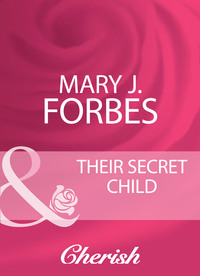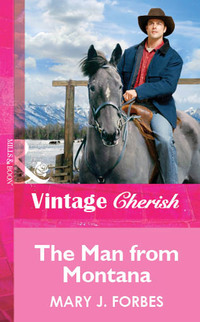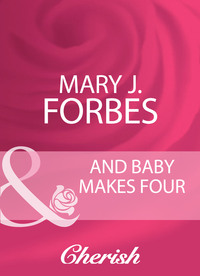
Полная версия
A Forever Family
“Jenni?” A woman’s voice. Her voice.
In the dim closet interior, Michael’s hands froze on a cluster of hangers. What was she doing here? He watched his niece pivot, eyes swimming with hurt and fear.
“Uncle Michael’s taking away Mommy’s clothes, Shanna. He says she’s never, ever, ever coming home.”
“Aw, peachkins…”
Jenni’s mouth trembled. She darted a look his way, then dropped her doll and ran from his line of view. An instant later he heard her muffled whimper: “I hate him.”
“Jenni—”
“Please, make him stop. Please, Shanna. Please.”
Michael closed his eyes and released a sigh. When would life be normal again? Never, he thought and stepped out of the closet.
His lanky-limbed employee stood five feet inside the doorway with Jenni wrapped around her thighs like a tiny tenacious wood nymph. Tears crept down the little girl’s uplifted face and rolled into the curls smoothed by mothering hands.
Shanna raised her eyes. He hadn’t anticipated the fury in them. Or the pain.
“So,” he said, ignoring a snip of guilt—and jealousy. “Three days ago you introduce yourself to my horse. Today, my niece.”
“She was wandering around outside. By herself.” The last two words hung like stone pendulums.
He stepped around the box and picked up the doll. “Jen, take…” What did she call it? “Take your doll downstairs and feed her some of your favorite tea.”
The child gave him a teary, pouty look. “Don’t want to.”
“Jenni.” Ms. McKay pushed Leigh’s daughter away gently. She knelt and cupped Jenni’s small shoulders. “It’s okay. Do what Uncle Michael asks. He’s…” She threw him a quick, cool look. “He’s worried Tavia might be hungry. It’s nearly lunchtime, you know.”
Rubbing a palm up the side of her nose, the child shot him another look. “’Kay.”
“That’s a sweetie.” Without so much as a glimpse his way, Shanna McKay reached for the doll. When he laid it in her hand, she straightened its frilly dress and delivered it to Jen. “I’ll be down soon,” she whispered.
She watched the girl head out of the room. Annoyed that he studied his employee with her sun-gilded thighs and patched denim shorts, rather than his niece, Michael said, “What’s with the aloha look?”
Her head slowly turned. The wistfulness he’d seen in her face evaporated. Coldness settled in. Ah, but her wide, feminine mouth stayed soft as a ripe peach. He drew closer.
She pushed to her feet. Her eyes were severe. He fancied his battered boots, tired Wranglers and wrinkled T-shirt scored a thumbs down. Her chin elevated. “Are you talking about this?” She pointed to the flower.
He nodded, unable to look away. The foolish thing reminded him of a sultry night dancer. Sultry and night was a combination he wanted—no, needed—to avoid, especially around her. Purposely, to regain his balance, he glanced at the box draped in Leigh’s clothes, and was jolted back to reality. “Looks all wrong,” he muttered, mind back on his task.
Her laugh was soft and husky. “Well, Doc, your opinion isn’t worth a hoot. But your niece is another story. She’s smart, sensitive and has this charming idea that flowers make people happy. I happen to agree with her.”
Michael turned again to the woman standing pole-straight in front of him. Her lean, tanned arms were folded under small, round breasts. Below his navel he felt a rush of blood.
He took in the blossom above her ear and the jumble of her hair. Silky, he thought, and itched to take up a fistful.
His eyes found hers. Wide, wary.
Boldly, he stepped into her space. “Happy, huh?” He watched air affect her nostrils as he touched her cheek. “Are you happy, Ms. McKay?”
“Doesn’t matter if I am or not.” She caught his wrist and plucked the marigold from her hair. “Question is,” she said softly, placing the flower in his palm, “Are you?”
His skin throbbed where their fingers curled together and the knot of petals pressed. “Happiness isn’t the issue here.”
“Wrong. It’s the only issue when it concerns your niece.” Her eyes gentled. “Don’t trash her mother’s clothes.”
He backed away. “I’m not trashing them. I’m taking them to the Lady of Lourdes church.” Defeat enveloped him. He pushed out a long breath. “I didn’t expect Jenni to come up here, okay? She was to stay downstairs.”
“Well, she didn’t. She went outside. Luckily, she wandered toward the cabin instead of the barns. Do you have any idea what she might have run into down there?”
Guilt gnashed his gut. “Look, Ms. McKay—”
“No, you look. Your niece needs you. At the moment, she’s got one person to fill those vacant spots her parents left. You. Give her some attention. Show a little concern. Heck, a pat on the head would do the trick fine.”
“Playing shrink now?”
She ignored the insult. “Jenni told me you don’t like being bothered. In my books that means she’s in your way. No child should ever be in the way.”
Michael stared at her. Bothering him? Was that how Jenni saw herself? Why not? You barely see her.
The woman before him scraped back her uneven bangs. “Fire me for pointing it out. I don’t care. The well-being of a child is more important than a job.”
He could see she didn’t give one spit if he did fire her. To her, Jenni was at risk in his custody. He didn’t know whether to feel humbled, guilty, angry or all three.
Bending to her level, he said softly, “Who do you think you are, Ms. McKay? Mother Theresa? You don’t know flip from flap about raising kids, or how it feels to live without parents. But you’re right about one thing. If you want to retain this job, keep your opinions to yourself.”
Her pupils dilated. She clamped her lower lip. Retreated a step. “I think…” Another step. “I think it’s…best I go.”
Regret spiked his belly. “Ms. McKay—”
“Shanna,” she corrected, shaking her head. “My name is Shanna,” she whispered. “Just like yours is…is Mike.”
“Mike? No one calls me Mike.” But he liked it. Across her lips it was an intimate, seductive little breath. Yeah, he liked Mike—a lot.
A quavery laugh escaped her lips. “I’ll try and remember that next time we meet.”
She left the room, and he stood alone with silence and a delayed whiff of her scent closing in on him.
Jenni sat on the floor between the couch and the coffee table. She wished Shanna would come downstairs. She knew Uncle Michael and her new friend were talking about what happened.
The tears she had wiped away started plopping on Tavia’s jumper again. It was getting really spotty. Octavia was so upset, and Jenni didn’t know how to calm her.
“It’s okay, Tavia,” she whispered against the doll’s hair. “I’ll look after you. I won’t let Uncle M. yell at you no more.”
But Tavia just kept crying, wishing for Mommy and Daddy to come down from heaven instead of staying up there and helping God all the time.
She didn’t like them being angels. She wanted them to be people like Shanna and Grammy. Even like Uncle M.
Jenni wouldn’t let Tavia tell her to say mean things to Uncle Michael, either. That wasn’t nice. She really didn’t hate him. She just didn’t want him to throw Mommy’s things away.
“’Cause,” Jenni whispered. “If he throws Mommy’s clothes away, he might throw mine away. Maybe he’ll even throw me away.”
She bit her lower lip and palmed her nose. If Uncle M. threw her away, then she and Tavia would just go and live with Shanna or Grammy. Sniffing, she swiped her eyes with the back of her hand. Yeah, that’s what they’d do. They’d live with Shanna. Shanna was fun and showed her things like the chick’bees.
Stroking Tavia’s hair, Jenni rocked back and forth, singing softly. She and Tavia felt better.
He’d been a jackass.
Again.
If she called him worse names when she opened her door, he’d bow his head and take them in stride.
All day he’d kept watch on the white log house through the trees. The battered two-toned pickup, parked in the narrow driveway, meant she hadn’t left as he’d feared during the hour he’d been to Blue Springs. Shortly after lunch his grandmother had called to announce her return from her six-week visit to her brother in Anaheim, and she’d demanded to see her great-granddaughter. Grateful for an excuse to get out of the house, he took the tyke into town. After this morning, he had no delusions about Jenni’s eagerness to leave him for a few hours.
Damn. They should be drawing closer. Bonding, not pulling apart. They shared a loss. As the adult, and a doctor, he knew how to lessen the trauma for Jen and for himself.
Except, he couldn’t.
Shanna’s right, he thought, walking the pathway toward the employee quarters. As a stand-in parent he was a bozo.
Shanna. The name hummed through his blood. He didn’t understand the attraction. She wasn’t his type. Tall, slim to the point of being gangly. He preferred women with hourglass figures. Soft. Yet, a glimpse of her had his jeans in an uncomfortable fit.
He regarded the cabin, then the ridiculous marigold in his hand, and scowled. Seven months without so much as a dinner date was more than any normal red-blooded American man should endure. The last, with a divorced radiologist, had evolved into a date of ear tonguing and crotch palming—from her—that he would rather forget.
Not Shanna. He’d be the one tonguing and palming. Lean limbs, that skin slick and damp…
Booting a pinecone off her stoop, he raised a hand to knock. No use denying it. The sight of her spun something between them.
The door flung open.
Her sapphire eyes were cool. Cool as the jewel they emulated. “Hey, Doc. Come to see if I’ve cut and run?”
Michael shoved off a flicker of displeasure. So she held grudges. He understood. Grudges held off pain. Thumbs catching his jeans pockets, he asked, “May I come in?”
“Why? As you see, I’m not going anywhere. I realized I do need this job.”
“I’d like to talk.”
“About what?” Her tone dipped below ice-blue, like the blouse she wore. “We said it all this morning. I stay out of your hair, you stay out of mine. When it’s over we’ll say adios and that’ll be that.”
“Dammit, Miss—”
“Drop the formalities, Michael. I’m just the hired help not one of your associates at the clinic, not a patient.”
He’d have preferred Mike—and the way it seared the air from her lips. Shifting, he stared down the hill at the barns. “I shouldn’t be taking my problems out on you.”
“Better me than your niece.”
He looked at her. She had such pretty eyes. “You don’t mince words, do you?”
“Seldom.”
Again he observed the barns and fields. “I never used to be like this.”
“Tragedy changes us in ways we don’t expect.”
And the tragedy I’ve seen in your eyes? “You’re different.”
“From who?”
“Most people.”
“Is that good or bad?” Her tone gentled.
He studied her soft mouth. “Good. Very good.”
“Well, that’s a first. Come in. I’ll put on a pot of tea.” She gestured to his hand. “That poor marigold needs water.”
She headed for the kitchen, leaving him to close the door—and to watch her backside in cropped denim pants. Baked chicken and a medley of spices hailed him. She could cook.
“Supper at three in the afternoon?”
“I skip lunch.” She pulled down the oven door and checked the meal. “So I try to eat early.”
He wandered around the tiny living room. “Next to breakfast, lunch is the most important meal of the day. There’s a saying that goes: king, prince, pauper. It’s how you should treat daily meals.”
This time her laughter was rich and a little smoky and floated into his belly. “I hate to put a crimp in your diet plans, Doc, but I eat when the growlies arrive. For me that happens twice a day.”
“You’re too thin.”
“Well,” she huffed. “Sorry if that offends you.”
“It doesn’t.” He liked her frame just fine. In fact, inordinately so. But he couldn’t snub his observations—from a medical viewpoint.
He looked around. It was the first time he’d been in the cabin since long before Leigh died. What he saw shamed him. The place was old. The walls needed painting.
“Would you like some chicken?” She tossed oven mitts on the Formica and readjusted one of the two barrettes holding back her hair. Her arms were graceful as a figure skater’s. He imagined them around his rib cage, his neck.
“You can’t live here.”
“Beg pardon?”
“The place is a dump. My sister—” How to tell her the cabin had been Leigh’s responsibility and that since her death he’d neglected it. Just as he neglected the animals, the books…Jenni.
“It’s not so bad.”
Not bad? One of the curtains hosted a foot-long tear. He hated to think of what lurked behind the doors of the bathroom and two bedrooms. Even after the maid’s cleaning.
Shanna took a brimming bucket from under the sink.
Striding into the narrow kitchen, he tossed the flower on the counter. “The sink’s leaking?”
“Good one, Doc. You get the prize.” She handed him the bucket. “Would you empty it in the toilet, please, while I put on the kettle?”
Just like her not to mention the condition of the house. He headed for the bathroom and dumped the water. About to leave, he stopped and looked. This was her space. Her secret space. Female essentials mussed the narrow, beige Formica around the antiquated sink and lined the chipped tub. Two blue-and-yellow combs, a big tube of hand lotion, glycerine soaps stuffed in a woven basket, a wooden tree strung with those ear danglers, Scooby-Doo lip balm— He did a double take. Scooby-Doo? Snorting softly, he shook his head. She was a rare something, this Shanna. And you’re in trouble, Rowan.
“Toilet working okay?”
He whipped around, the bucket clanging against a drawer. Arms crossed, she leaned in the doorway, one bare ankle slung over the other. Behind him the tiny round window let in the day’s light, tipping her cheekbones with rose.
“Yes,” he said, voice gruff. “It works.”
She smiled, glanced at the counter where he’d tarried. “Find anything interesting?”
He stepped toward the doorway. Her smile faded. A bouquet of meadows in summer caressed him. Oh, yeah. All woman. Easy angles, sweet-eyed. “Maybe I have.”
Her nostrils flared. “And it would be…?”
Today, three filigree chains swung like wind chimes from each of her tiny lobes. He tapped a trio. “Just…” You. “Little things.”
“Is there one in particular you favor?” Those blue eyes ringed in black swallowed him.
He perused the edge of her jaw, the line of her throat. “There is.”
A snippet of air against his knuckles. Hers.
Once, twice, his thumb grazed the satin of her neck. He tilted her chin. Her sweet mouth. Waiting for him. God, decades down the road he’d look at her features and be captivated. Still.
Paralyzed, he stared. Giving one woman, this woman the rest of his life? Out of the question. He wasn’t about to chance fate. Fate could involve kids. Fate had taken his parents’ plane into a mountainside. Left him and Leigh orphaned.
Like Jen.
Settling down was not in his Tarot cards. Neither was waking up beside the same woman until he was ninety-plus. Trouble was, within the space of two days his ethics had taken a lopsided turn out to left field. Because of her. Shanna.
Caught in her eyes, finger crooked under her chin, he wanted to wrap her up like a Valentine’s gift, kiss her till the cows came home, lead her through the open door of the bedroom five feet away, fly her to the stars.
But not forever.
“Mike?” she whispered.
He dropped his hand and stepped back.
“What’s wrong?”
“I have to go.” Two strides and he was down the hall. “I’ll find a guy in town to paint this joint.”
In a flash she was on his heels. “My brother can do it.”
He stopped. “Your brother.”
“Why not? He could use the money.”
“Fine.” She was close again. Too close.
The kettle whistled. He headed for the door, yanked it open.
“Where do I buy the supplies?” she called.
“Spot O’ Color. It’s on Riverside and—”
“I know where it is.”
“Great. Tell your brother to get on it ASAP. I want the dairy sold before fall.”
He slammed out of the cabin before she answered. Before he changed his mind, stormed back inside and kissed her like…hell, like a crazy man.
Chapter Three
She washed the bag of the last big-bellied black-and-white Holstein with Santex disinfectant. “Almost done, Rosebud.”
In the metal stanchion, the cow chewed her cud peaceably. Shanna hung the Westfalia Surge milking unit on a hook and affixed the suction cups to the animal’s sanitized teats. Hiss-click-hiss-click. The machine streamed milk to the sixteen-hundred-gallon stainless steel tank in the milk house.
Dressed in green overalls and rubber boots, Shanna knew a contentment she hadn’t felt since growing up on the Lassers’ farm. She liked the cows’ broad, docile faces, their big, dark eyes, their gentle natures. She fancied the classic bovine odor within the big flatbarn: a fusion of hay and manure and sweaty hide. And, physical as it was, she liked the work.
She’d like it more if she could stop thinking about the doctor and those moments in her washroom. When she thought—knew—he’d wanted to kiss her.
For the past two days, since striding from the cabin, he’d kept himself and Jenni hidden. Late at night the Jeep’s headlights would come down the lane and stop at the farmhouse. The next morning, after milking was finished, the car was gone again. She wondered if the child came and went with him.
Ah, why worry? she thought, releasing Rosebud from her milking apparatus. He made it clear you weren’t to interfere.
Prickles ran up her nape.
He stood five feet away, hands shoved deep into the pockets of black trousers. The sleeves of his gray dress shirt were flipped back on his forearms, the collar liberated of its tie.
Her breath quickened.
Ignoring the broody expression on her employer’s face, she pressed a wall button and, on a clang of metal, relinquished the last group of ten cows of their stalls.
“Checking to make sure I’m doing my job, Doctor?”
“Nope.”
“Good.”
Down at the far end of the parlor, old Oliver Lloyd, whistling to Tim McGraw’s “Where the Green Grass Grows,” hosed manure and urine from the step-dam gutter. On Tuesday, the slurry man would haul away the two-week store. The animals clopped down the alleyway toward the open double doors at the rear of the long barn. Shanna tagged behind them with Michael at her shoulder.
Approaching the paddock where the cows fed at extended troughs filled with a silage of corn and alfalfa, she scanned the doctor’s dress slacks—with creases down those long runner’s legs—and his black buckled shoes. “Fresh patties ahead. Sure you want to walk through here in those?”
His lips moved. “Where you going?”
Away. Far away. “To check the water system.”
He surveyed the galvanized vat near the opposite gate. “What’s wrong with it?”
“Nothing, but I check it regularly.”
He stared out over herd and land. A cluster of sparrows chirped in the eaves. From the western hills, the sun slanted long, spindly shadows beside the cattle as they found their places at the feed stanchions, tails lazily swishing flies.
“You’re an amazing woman, Shanna McKay.” He spoke without looking at her. “You come here out of the blue, answer my ad personally, befriend my niece who’s barely talked to a soul in three months, and milk ninety head of cows twice daily as if it’s the most natural thing for a woman to do.”
“It is,” she said and meant it.
He turned, his gray eyes searching hers. “No,” he replied. “It’s not. It’s damned hard work.”
In the natural light, he looked exhausted. Beneath the shirt, his big shoulders slumped a little. Shadows, like the prints of inked thumbs, lay under his eyes.
“And doctoring isn’t difficult?” she asked, beating back the urge to lay a cool hand to his cheek. She didn’t want to feel sorry for him.
A rueful smile. “At times.”
“There you go. All jobs have their rough moments.”
As if he hadn’t heard her, he said, “I don’t know how you do it. But then you’re unique.”
“That’s not what you said in the cabin.”
His eyes returned to hers. “What did I say in the cabin?”
“That I was different.”
He flicked one of the three-inch gold dream-catchers she’d slipped into her ears at dawn. “Unique,” he repeated softly. A corner of his lips curved. “And possibly a little atypical.”
She felt the look he gave the ball cap controlling her messy hair clean to her toes. She wished she wasn’t in hot, heavy barn gear, but in some light, airy thing. Ah, who was she kidding? She wasn’t the light, airy type.
He looked back at the land. He did that a lot, she noticed. Gazed off as if taking a detour from what was on his mind.
A slight bump rode high on his long, thin nose. An austere, masculine mold cast his lips. Was he a timid kisser? She doubted it; she’d bet he was an openmouthed, migrant sort of guy. A tongue dancer. How many of those cute nurses have you kissed?
More than I want to know.
She headed for the metal vat. Plunging her bare arm into the cold water, she felt along the bottom for the outflow. Good, free of blockage. Stepping back, she shook her arm and swiped at the water droplets.
“Here.” Michael rolled down a sleeve. For a dime’s value of seconds she stood beguiled as he dried her hand and forearm with a strip of gray that matched his eyes.
His hands were large, the knuckles heavy with a light dusting of hair. She envisioned those hands holding a scalpel. Or maybe pressing a tummy searching for abnormalities and ailments. She envisioned his hands on her tummy.
She looked up and found his eyes dark with wonder, his mouth tight, the tiny scar pale. He had thick, spiky lashes. Black as pitch. How would they feel tickling her lips, her fingers?
Get real, Shanna.
Her hands reeked of cows; his had been washed with Ivory. Her hair was jammed under a Seahawks cap. His lay in a short, crisp style.
No matter how she viewed it, he was the princely physician and she the mere milkmaid.
His thumbpad, gentle and strong, brushed the veins of her wrist and, for a heartbeat, rested in her palm. An unfamiliar touch. One, if she were honest, she’d never experienced. Certainly not with Wade. She shivered. This dreadful magnetism was wrong.
“You’re chilled.”
Mercy. That bass voice. She looked to where his fingers cupped her wrist, where her flesh goose-bumped. How discordant, the magnitude of his hand to her bones. Argh! Absurd, fantasizing about a man whose knuckles and flipped sleeves had her insides on a wave drill. In social circles they were as comparable as a Lamborghini and a farm pickup. She was tailored to guys like Wade with his Tony Lama boots, black Stetsons, pearl-buttoned shirts—and smelling of saddles and horse sweat. Michael was…a surgeon.
Carefully, she stepped back and folded her arms over her chest. Hiding. “Nothing wrong with the valve. Truth is, the entire dairy’s in great shape.”
“So’s your kitchen drainpipe.”
“It’s fixed?”
“Put in a new seal when I got home from work.”
“You?”
A pleased little-boy smile. “I wasn’t always a doctor, Shanna. I learned to use a wrench before a stethoscope.”
Heat moved up her neck. “Sorry, I wasn’t being sarcastic.”
“I know.” They looked at each other for a long moment. He said, “I also bought a couple tins of paint. They’re on the doormat. Oliver can help. I should have thought of it before.” He rubbed his forehead. “I’m not used to this selling business.”
Her smile faded. She had no business telling him what to do. No business feeling the way she did. About him or the child. But telling and feeling were two traits she’d never governed with discretion.








